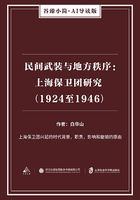“Well, what would you have, then? You are all in love, it seems, nowadays. Oh, well, if you’re in love with him, better marry him,” said the countess, laughing angrily, “and God bless you.”
“No, mamma, I’m not in love with him. I suppose I’m not in love with him.”
“Well, then, tell him so.”
“Mamma, are you cross? Don’t be cross, darling; it’s not my fault, is it?”
“No, but upon my word, my dear, if you like, I will go and tell him so,” said the countess, smiling.
“No, I’ll do it myself; only tell me how to say it. Everything comes easy to you,” she added, responding to her smile. “And if you could have seen how he said it to me! I know he did not mean to say it, but said it by accident.”
“Well, any way you must refuse him.”
“No, I mustn’t. I feel so sorry for him! He’s so nice.”
“Oh, well, accept his proposal, then. High time you were married, I suppose,” said her mother angrily and ironically.
“No, mamma, but I’m so sorry for him. I don’t know how to say it.”
“Well, there’s no need for you to say anything. I’ll speak to him myself,” said the countess, indignant that any one should have dared to treat this little Natasha as grown up.
“No, not on any account; I’ll go myself, and you listen at the door,”— and Natasha ran across the drawing-room to the hall, where Denisov, his face in his hands, was still sitting in the same chair at the clavichord. He jumped up at the sound of her light footsteps.
“Natalie,” he said, moving with rapid steps towards her, “decide my fate. It is in your hands!”
“Vassily Dmitritch, I’m so sorry for you! … No, but you are so nice … but it won’t do … that … but I shall always love you as I do now.”
Denisov bent over her, and she heard strange sounds that she did not understand. She kissed his tangled curly black head. At that moment they heard the hurried rustle of the countess’s skirts. She came up to them.
“Vassily Dmitritch, I thank you for the honour you do us,” said the countess, in an embarrassed voice, which sounded severe to Denisov, “but my daughter is so young, and I should have thought that as my son’s friend you would have come first to me. In that case you would not have forced me to make this refusal.”
“Countess! …” said Denisov, with downcast eyes and a guilty face; he tried to say more, and stammered.
Natasha could not see him in such a piteous plight without emotion. She began to whimper loudly.
“Countess, I have acted wrongly,” Denisov went on in a breaking voice, “but believe me, I so adore your daughter and all your family that I’d give my life twice over …” He looked at the countess and noticed her stern face.… “Well, good-bye, countess,” he said, kissing her hand, and without glancing at Natasha he walked with rapid and resolute steps out of the room.
Next day Rostov saw Denisov off, as he was unwilling to remain another day in Moscow. All his Moscow friends gave him a farewell entertainment at the Gypsies’, and he had no recollection of how they got him into his sledge, or of the first three stations he passed.
After Denisov’s departure Rostov spent another fortnight in Moscow, waiting for the money to pay his debt, which the count was unable to raise all at once. He hardly left the house, and spent most of his time in the young girls’ room.
Sonya was more affectionate and devoted to him then ever. She seemed to want to show him that his loss at cards was an exploit for which she loved him more than ever. But now Nikolay regarded himself as unworthy of her.
He copied music for the girls, and wrote verses in their albums, and after at last sending off all the forty-three thousand roubles, and receiving Dolohov’s receipt for it, he left Moscow towards the end of November without taking leave of any of his acquaintances, and overtook his regiment, which was already in Poland.














